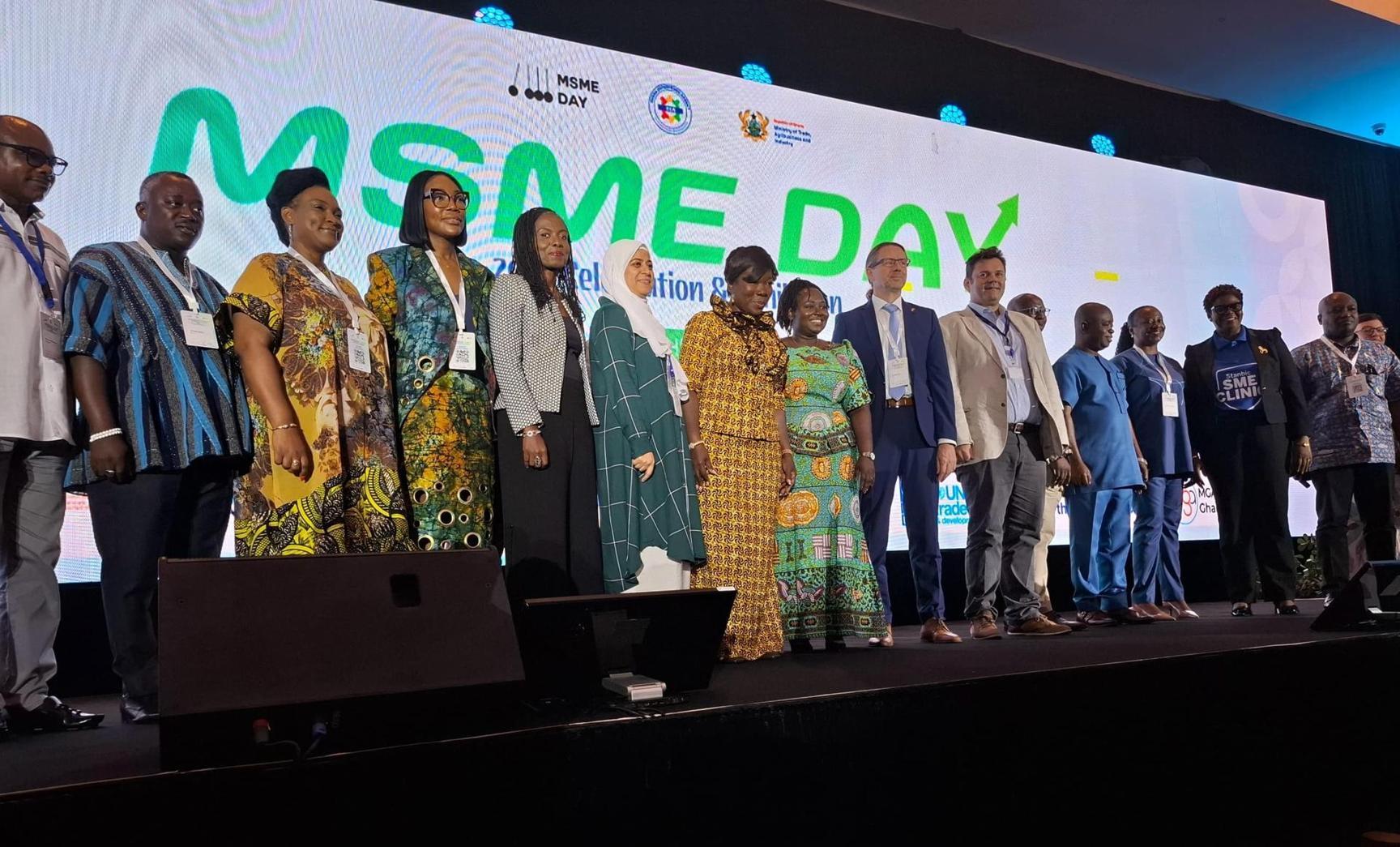Africa-Press – Ghana. Madam Elizabeth Ofosu-Adjare, Minister of Trade, Agribusiness and Industry, has outlined key targets to measure the transformation of Ghana’s Micro, Small, and Medium-sized Enterprises (MSMEs) by 2027.
The Minister envisaged that by 2026, three industrial and agroecological parks should be operational with reliable energy, logistics and production of infrastructure to support MSMEs to grow, scale and create formal jobs in competitive sectors.
Speaking at the 2025 MSMEs Day convened by the Ministry of Trade, Agribusiness and Industry in partnership with the United Nations, Madam Ofosu-Adjare also targeted a reduction in time and cost of business certification by 40 per cent.
Additionally, the Minister set the target to support at least 5,000 MSMEs to attain the regulatory compliance required to assess domestic and international markets and onboard 50,000 MSMEs into digital platforms for e-commerce payments and business management.
She said the targets would ensure that Government policies produced real, measurable outcomes that transformed the lives and livelihoods of entrepreneurs across the country by 2027.
“I remain committed to supporting women, particularly the market women in Makola, in Tuobodom, the artisans in Suame, the digital entrepreneur in East Legon and the farmer in Ejura, helping them transition from informal to formal, manual to digital and local to global. ” Mrs Agyare said.
The Minister said she had directed the immediate revision to the National MSME and Entrepreneurship policy to better respond to the needs of the sector.
She said the Ghana Enterprise Agency was also taking instructions to develop a new strategic plan with focus on the youth and women entrepreneurs, Persons With Disability (PWDs) and the informal economy.
A 2023 Report by the Strategy and Research Department of GCB Bank Ghana indicated that MSMEs accounted for over 90 per cent of businesses in Ghana and about 80 per cent of the total employment in the country.
Ms Margaret Ansei, the Chief Executive Officer, Ghana Enterprise Agency, said in spite of the huge contribution of MSMEs to the economy, they faced critical challenges including access to finance, tools, and skills that hampered their ability to scale.
She said the GEA was committed to building a thriving MSMEs sector by providing affordable financing, digital skills training, and reducing the cost of doing business with keen focus on women and PWDs.
Madam Shaima Hussein, the Deputy Resident Representative, UNDP Ghana, described MSMEs as the “engine for the economy to grow.”
She said the agriculture sector should be an area of concern due to its huge employment rate and advocated for the technological support, finance, and essential skills for MSMEs in the agriculture value chain.
For More News And Analysis About Ghana Follow Africa-Press







